Carceral Archipelago
Subscribe
Posted by Katy Roscoe in Carceral Archipelago on September 30, 2016
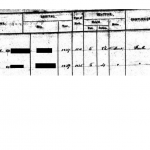
In the 1840s, campaigners for the abolition of convict transportation engaged in a campaign of scare-mongering about the prevalence of sexual acts between male convicts (dubbed “unnatural acts”). This strand of anti-transportation rheotirc was particularly effective because it suggested that a system that was supposed to engender moral reform actually produced moral degradation.[1] Panic about rampant homosexual activity […]
Posted in Uncategorized
Posted by Clare Anderson in Carceral Archipelago on September 9, 2016

During my PhD study and for the first ten years of my academic career, I researched alone. I went to the archives, I discussed and presented my work to academic audiences, and I published books and academic papers. Though like many others, I felt myself to be engaged in a larger intellectual project (subaltern studies, […]
Posted in Carceral Archipelago, Comparison, Conference, Connections, Convicts, Global History, Methodology, Penal Colonies, Postgraduates | Tagged Carceral Archipelago, Convicts, Global history, Penal colonies, University of Leicester, University of Sussex |
Posted by Carrie Crockett in Carceral Archipelago on August 29, 2016
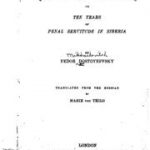
Last year I came across a rare archival find: multiple editions of a 19th century prison newspaper covertly produced by Russian inmates between 1890 and 1905. The newspaper editions, now brittle paper manuscripts fraying brown along their edges, were archived along with a note of introduction by the editor-in-chief. The editor describes the way in […]
Posted in Carceral Archipelago, Convicts, Political prisoners, Prison writing, Prisons, Russia, Sakhalin Island, Uncategorized |
Posted by Christian De Vito in Carceral Archipelago on July 10, 2016

The Iglesia de la Merced, in Quito, was built in 1737 on the remains of the original church that dated from 1538 – four years after the foundation of the city. The church is situated in the city centre, at less than one kilometre distance from all other main sites of the colonial period: the […]
Posted in Carceral Archipelago, Convicts, Death, Ecuador, Latin America, Philippines, Presidios, Punishment, Religion, Spanish America, Spanish Empire |
Posted by Clare Anderson in Carceral Archipelago on June 13, 2016

At the end of last week, thirteen Nobel prize-winning scientists wrote a letter to the right leaning newspaper The Daily Telegraph, urging Britain to vote ‘remain’ in the forthcoming European Union (EU) referendum. The scientists warned of the consequences of a British exit (or ‘Brexit’) from the EU, drawing attention to the fact that […]
Posted in Carceral Archipelago, Methodology, Penal Colonies, Postgraduates, Uncategorized, University of Leicester
Posted by Clare Anderson in Carceral Archipelago on June 8, 2016
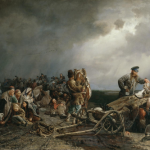
By Mikhail Nakonechny. The late Imperial Russian prison and exile system is almost unequivocally considered to be the traditional embodiment of brutality, institutional inhumanity and injustice. The popular image of endless convict suffering in vastness of Siberia, supported in the English speaking world by the influential George Kennan’s work on Siberian exile[i] and enhanced by […]
Posted in Uncategorized |
Posted by Carrie Crockett in Carceral Archipelago on May 15, 2016
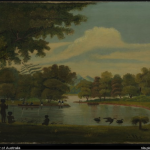
by Kellie Moss In June 1829, Governor James Stirling founded the Swan River Colony on the mainland of Western Australia. Whilst the hype surrounding the new colony attracted almost 2000 people to Swan River in the first year, few of these initial settlers concerned themselves with the rights of those they were dispossessing. Furthermore, […]
Posted in Uncategorized
Posted by Carrie Crockett in Carceral Archipelago on April 19, 2016

Peter Kropotkin is remembered today as a brilliant Russian social revolutionary, geographer, scientist, and anarchist writer.Less well known, however, is the name of the friend and co-conspirator who significantly prolonged Kropotkin’s life by engineering his remarkable prison break in 1876. Dr. Orest Edward Veimar, a St. Petersburg surgeon, was the chief architect of Kropotkin’s […]
Posted in Escape, Peter A. Kropotkin, Political prisoners, Russia | Tagged University of Leicester School of History |
Posted by Christian De Vito in Carceral Archipelago on March 21, 2016

The prison of the wolvenplein (Wolves Square), located in the city centre of Utrecht (The Netherlands), closed down in June 2014 as part of the budget cuts that have also affected the prison administration. By the time of the closure, 124 persons (men and women) were imprisoned there. The prison was built in 1856 as […]
Posted in Uncategorized
Posted by Clare Anderson in Carceral Archipelago on March 8, 2016
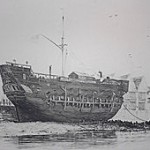
By Anna McKay, AHRC Collaborative Doctoral Partnership Student, National Maritime Museum & University of Leicester. As a relatively new addition to the University of Leicester’s School of History and the Carceral Archipelago project, over the last few months I feel as if I’ve undergone a thorough “academic baptism”. Since beginning my PhD studies in […]
Posted in Bermuda, Carceral Archipelago, Conference, Convict labour, Convicts, Free and Unfree Labour, Gibraltar, Global History, hulks, Penal Colonies, Prisons, Punishment, University of Leicester | Tagged Carceral Archipelago, Conference, Convicts, University of Leicester












Recent Comments